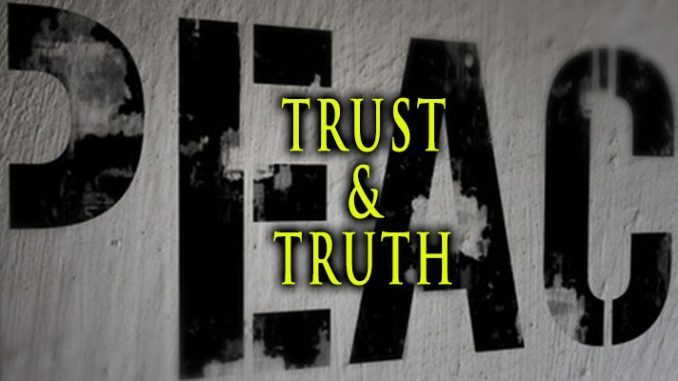
In this 25 March 2004 Bangkok Post commentary, Assistant Editor Sanitsuda Ekachai connects unrest in the South and the 14 March disappearance of civil rights lawyer Somchai Neelapaijit with other recent disturbing events in Thailand – the government’s cover-up of the bird flu outbreak, the coincidence of Prime Minister Thaksin’s business interests with government, and his policies to privatize the nation’s electric utility and introduce information-encoded ID cards without popular consultation. Sanitsuda can be contacted at sanitsudae@bangkokpost.co.th.
Can we solve our present problems using methods from the past? The state seems to think so, which is why there is no peace in the South anywhere in sight.The mysterious disappearance of Muslim lawyer and human rights defender Somchai Neelapaijit is reminiscent of the government’s ruthless tactics used during the Cold War. So is the use of false witnesses to deliver scapegoats. When state authorities arrested a group of Muslim community leaders for their alleged links to a terrorist group, Mr. Somchai came to their rescue because he believed they were being used as scapegoats. If he wins their case, the police will have much to lose.
Incidentally, the disappearance of Mr. Somchai took place amid frequent abductions in the deep South – just like during the Cold War.
State reticence and media oversight have fanned local resentment and alienation. And understandably. While the central state and national media play up the Muslim terrorist threat, the plight of small people in the face of this terrorism receives no attention at all, thus intensifying their grudge against state and media prejudices. If anything, the recent police investigation which led to three parliamentarians being accused of masterminding the Jan. 4 assault on a military camp in Narathiwat has cleaved the credibility gap even wider.
It is the perception that counts. The police and the government have said nothing to back up their case, and in the people’s eyes, abduction and the use of false witnesses are all too familiar police means to close their cases. During the Cold War, state persecution pushed many people into the arms of the communists. After long years of bloodshed, peace came with the government’s policy shift from force to reconciliation. But peace was short-lived because unregulated development and central control have allowed outsiders to plunder the southern Muslims’ natural resources, thus widening inequality and ethnic resentment.
Communal violence does not break out just because of different beliefs and races. It erupts when one ethnic group exploits another, leaving the losers behind economically, politically and socially. The cure is in returning to the locals their sense of control. And dignity. Pumping in money only widens the gap, and persecution just adds fuel to the fire. Healing is only possible when there is trust. This cannot happen if we do not honestly face the problem of state oppression in the South and keep the wheels of justice turning. There also cannot be trust if the public view the government as turning out lies.
Since the beginning of this year, a string of scandals has seen the government lose public trust, starting with the bird flu cover-up. Although the government insisted the flu affected its economic performance [only] marginally, it rocked the government’s credibility – an important political asset – to the core.
Then followed the iTV conflict of interest, the hasty privatization scheme for Egat, the indiscreet issue of smart cards, and the leak of national entrance exam papers and answers – which is a slap in the face of the whole country.
Last week, His Majesty the King’s close aide, Sumeth Tantivechakul, came out to voice the King’s deep concern with corruption and state abuse of power. Mr. Sumeth called for public action to end corruption because “the country does not belong to His Majesty alone.” We cannot answer this plea until we question the ultra-nationalism used by the government to persecute southern Muslims. As well as our ethnic prejudices, we need to question the get-rich-quick development which spurs our greed and blinds us to state corruption and social injustice.
When we achieve this, the government will not be able to fool us any more. It will have to change its ways.
Sanitsuda Ekachai
Kyoto Review of Southeast Asia. Issue 5 (March 2004). Islam in Southeast Asia
